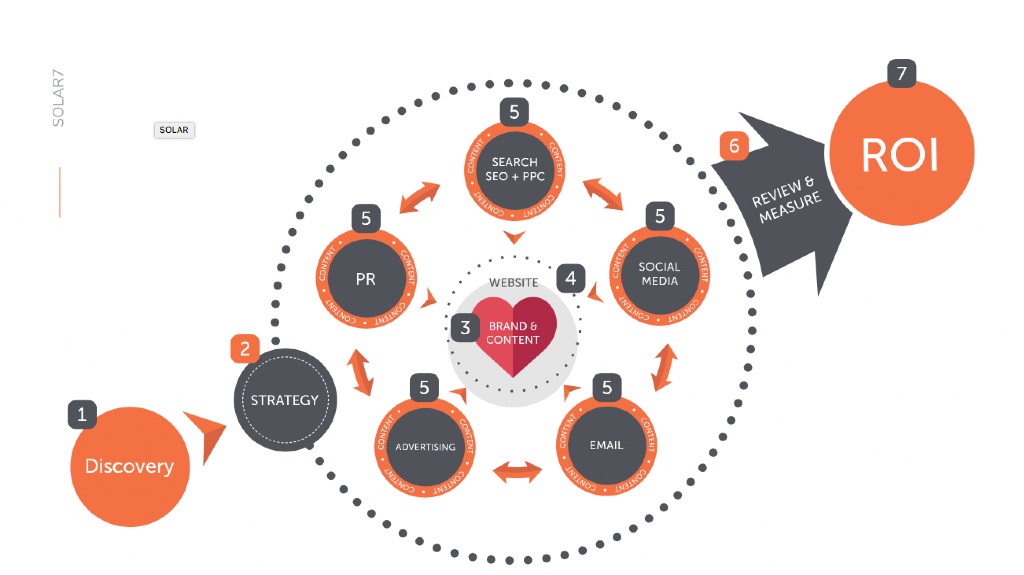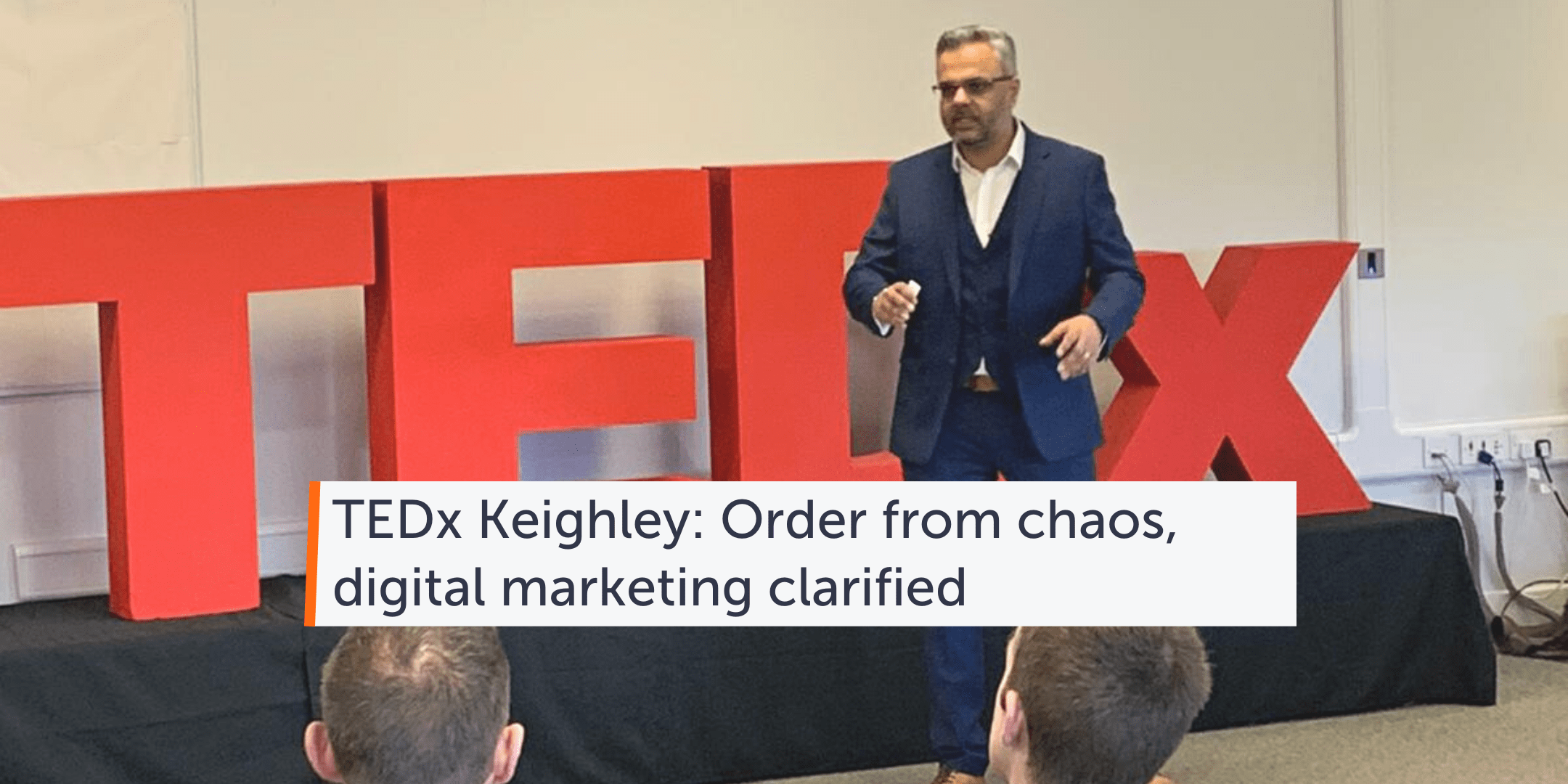Marketing. What does it really mean? We hear all kinds of attitudes and see all kinds of variants of opinions on it. People seem to understand very clearly what all the other departments in a business are and how they operate, but marketing remains a fuzzy concept to most.
Why is this? As a marketing agency, we’re often faced with the grueling question of what marketing really is and how it can benefit an organisation. As marketers, we often talk about pain points – well, this is ours…
So, our Director Jag Panesar took to LinkedIn to ask his followers to describe marketing in one sentence, to get a better understanding of the interpretations and misrepresentations of the subject, in the hope to provide some clarity for the real benefits of having a marketing strategy.
What Marketing is Not
Perhaps the obvious place to start is understanding what marketing is not. We’re under the impression that from an outside perspective, it’s easy to misconstrue the true fundamentals of marketing. I suppose the introduction of social media has a part to play in that. We often find that because social media is a widely used marketing tool, for non-marketing purposes, that people assume marketers operate in the same way as someone on their personal social platform. However, a marketer would understand that this is not the case at all. A great deal of thought goes into understanding the customer on the receiving end of the posts.
Marketing is not a waste of money when done right and expectations are set. People often overlook the soft metrics as not contributing to ROI. But, if you really think about it, without marketing, you are unable to provide exposure for your product/ service. The sales funnel is a process, and your marketing is the stepping stone to get you there. Overlooking the importance of generating brand awareness can be more costly for a business than not implementing a marketing strategy in the first place.
From The Perspective of The Chartered Institute of Marketing
So, let’s start by looking at a definition from a well-respected source, the Chartered Institute of Marketing:
“Marketing is the management process responsible for identifying, anticipating and satisfying customer requirements profitably.”
The Chartered Institute of MarketingIt’s a broad statement, but it works. However, the issue with this definition is that it refers to making a profit, and whilst, yes that is the main objective of nearly all private organisations, to us that isn’t the sole purpose of marketing. Profit refers to monetary value, but what about the other two types of results that are often overlooked? One type of metric that is often overlooked is the kind of thing offered by analytics platforms such as Google Analytics or social media analytics. This measurement gives an indication of the success of the journey to the monetary goal.
The other measurement, which is harder to quantify, is the emotional impact of successful marketing on the business owner or marketing manager e.g. if they are achieving alignment with their journey to their company goals and it makes their life easier, arguably, this could be the most valuable measurement! Too often, businesses are focused on short-term profit wins and less on how they can set up their brand for growth in the future.
Our Research and What We Have Found…
Our research resulted in some interesting findings. In fact, we were able to separate the responses into 3 groups:
1. The perspective that marketing is at the centre of every business.
“If a Business organisation is the bus then marketing is the driver. Without that driver, your bus is going nowhere.”
Manpreet Singh“The lifeblood of every successful business.”
Ellie MckayIt’s interesting really, that only two of our responses fell into this group. Although these are vague perceptions, they are powerful in getting the point across. We believe marketing is the powerhouse to any successful business strategy.
Take Coca-Cola’s ‘Share a Coke’ campaign; here is a perfect example of the marketing driving the business forward. By connecting directly with customers, having a powerful call to action, and using personalisation to encourage excitement on social media, they were successful in achieving their objectives. I suppose what I’m trying to say really, is that without this marketing strategy in place, yes Coca Cola would continue to sell millions of units within the year, but their exposure would be significantly less. The point is, Coca Cola didn’t get where they are today by focusing on selling the product. They have built a long-standing reputation by connecting with their customers through their marketing strategies and that is what helps them to maintain the competitive advantage they have today.

2. The perspective that marketing and sales work cohesively.
This category talks about marketing being lead generation… whether generating a lead for a £1m piece of equipment or convincing someone to consider the new brand of beans in a supermarket… it’s lead generation. This simplistic approach often solves the ‘sales versus marketing… what’s the difference?’ question. In short, marketing generates the lead… sales converts the lead.
“The action completed by a business to promote the selling of products or services”.
Paul BarretWhat do I mean by marketing and sales working cohesively?
Well, essentially, marketing is a method of generating leads that should, in turn, result in sales. I suppose the issue with this perception is that it coincides with the popular misconception that marketing is not measurable; or a waste of money. Now, it’s important to understand that we completely agree with this interpretation; marketing is a strategy used to encourage selling. The problem with this interpretation is that it fails to take into account the “how”. Marketing isn’t as simple as generating leads or promoting your products or services. In fact, there is a whole level of deeper understanding that contributes to the result of lead generation/ promotion.
Blindly taking your product to market with no understanding of your consumer and their needs and wants will be ineffective. Take Dove’s Body Positivity campaign, for example. Here, the marketing campaign was a complete flop. They released limited edition packaging designed to present diverse representations of female bodies. Their packaging compared women’s figures to abstract, shapeless soap bottles- as you can imagine, this didn’t go down very well. The point I’m making here is that the promotion of a product isn’t always enough to sell- even for a well-established brand like Dove. Here, Dove showed they didn’t really understand their consumers’ needs at all and, because of this, the campaign failed.

3. The perspective that marketing is a way of generating awareness for your product/ service and contributing to a positive brand image.
“Marketing is the process of making the prospective customers of a business aware of the services they offer, the values they hold with the ultimate aim of providing the appropriate product or service to meet a need.”
Michael Edwards“I see marketing as means to add value to a brand, building unique associations, and evoke feelings and attachment towards the said brand.”
Alice BoamBrand building. In my opinion, it is the most powerful (but most difficult to achieve) method of obtaining a competitive advantage. For context, think about your purchase decisions when shopping for clothes. Brands are personal to our own preference, and this is usually because we can connect deeper with one brand over another. This solidifies the argument for needing to have an in-depth understanding of your consumer so that you can craft your communication strategy to effectively resonate with them. The mention of evoking feelings and attachment towards a brand is important. Have you ever considered that results can be more than just ROI? Perhaps having a brand image that encourages long term brand loyalty is more important than short term quick conversions. After all, a strategy that considers longevity is needed for a business to survive.
The mention of creating awareness is interesting. It almost co-exists with the idea of selling/ promotion, doesn’t it?
It’s important to note that although we have discussed all 3 perceptions separately, there is an element of cross-over between them all; which leads me to conclude that the reason marketing is such a grey area is because it encompasses all of the above. In fact, you could go as far as to say that marketing is how you wish to perceive it. We mentioned previously that as a marketer, it is important to have an in-depth understanding of your consumer. Therefore, perhaps our perception of marketing is a reflection of the marketing we respond to ourselves.
Our way of making the marketing process easier to understand
We’ve created a model that reflects the idea that a marketing strategy is built using all the concepts discussed above. We call this SOLAR 7. However, as the model shows, the tactics work interchangeably, meaning you’re not required to use all of them to create an effective marketing strategy.

In fact, it’s more important that you understand which channels are most appropriate for communicating with your target customer. SOLAR7 outlines that the use of a marketing strategy will help achieve ROI, but it’s important to understand what the most valuable ROI is for you or your client. Right now you’re probably confused about what I mean by that, and no, the term ROI hasn’t changed in definition.
Obviously, monetary value is the most common form of ROI, but have you ever considered that implementing a clear marketing strategy could have a far greater impact emotionally? Taking this step forward, by implementing a marketing strategy could be the difference between just getting by or having a really positive outcome for the year in your business AND personal life. For most, the positive emotional impact of that result will far supersede the short term monetary value.
To Recap…
So, to recap, I think it’s important to reiterate that there are several ways people can define marketing, just as there are many different ways to market to different consumers. I suppose as an agency, this is one of the biggest challenges we face.
We must move away from the idea that marketing is just creating pretty pictures on your phone all day and really start to appreciate the benefits it can have for your business. As with any other creative job, there is a level of subjectivity in what we do. We understand that some people won’t ever see it’s true benefits because they don’t understand it from the outset, but we do hope we’ve demonstrated the breadth of interpretations from different angles. Perhaps we’ve made you question your own initial perception of marketing? Either way, we’d love to hear your thoughts!
We’ve been creating marketing strategies for clients throughout the UK since 2007. If you’ve got a question or a project in mind, we’re more than happy to have a chat about how you can move forward with it.


